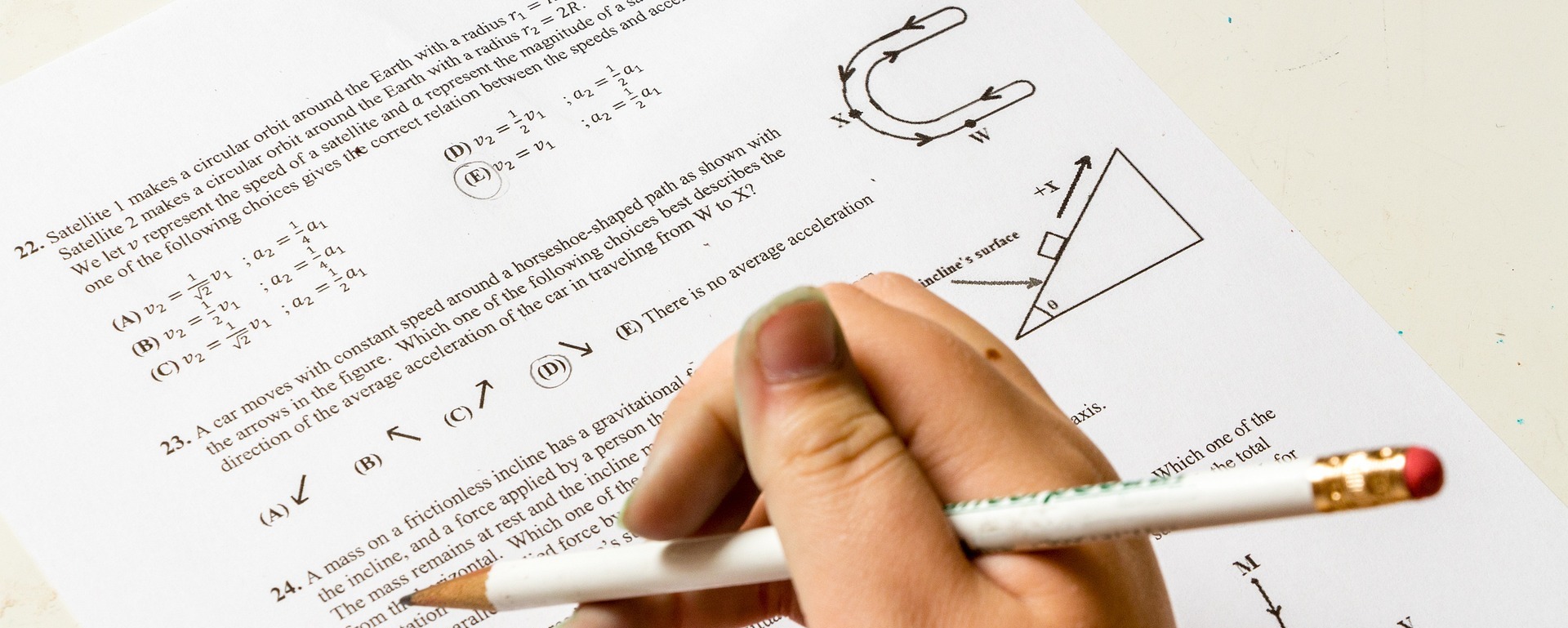Exam Stress
Posted on 26th May 2022
With lots of students currently waiting to start their exams and get those results, this can be a time of extreme anxiety and pressure to do well.
With exams we have practical problems (studying habits, correct resources etc.) and emotional problems, the focus of this blog will be understanding the emotional component.
For us to be able to understand how to deal with these feelings, it helps us first to have an understanding of where these feelings come from. Our thoughts affect our feelings which in turn affect our behaviours. These three are interactional, if we change our behaviours that also change our thoughts and naturally our feelings will follow suit.
It is very rare for a person to have a pure feeling; it is the things that we are telling ourselves about an event that holds our feelings in place. When a person tells themselves that they MUST absolutely perform well at a task this creates anxiety because you can't let yourself fall short of that standard.
Demands are very rarely based on reality. Water and air are a necessity to survive but passing an exam is not. Demands imply a life or death situation and therefore cannot be consistent with reality. That does not discount the benefits of passing an exam. The reason that we hold goals is because in some way it benefits our life. We seem to be continually asking ourselves unconsciously what’s in it for me? But because by nature humans are very self-defeating we seem to escalate our preferences i.e. “I would very much prefer to pass this exam” becomes “I MUST pass my exam.”
So what’s the answer to this? Are we doomed to hold these demands forever?
Nope! Not if we continually work against them and prove to ourselves over and over again that “although I would like to pass my exam, I have done everything possible to increase the probability of doing so (hopefully) but of course there are no guarantees.”
Questioning and challenging our thinking can set us free albeit a constant endeavour to maintain our progress it is worth the effort required, the juice is worth the squeeze.
A common rebuttal is “that’s great and all, but if I get rid of a demand won’t that make me lazy and not want to do anything at all”?
There is definitely a practical benefit to holding demands. If we trace this back to our caveman days, it seems much more practical to hold a demand that “I must get away from the sabre tooth tiger” vs. “I’d prefer to”.
Sometimes irrational thinking can help us but we're no longer operating in that volatile environment, anxiety isn’t in the jungle anymore, it’s in the exam hall.
We never entirely remove a demand, we seek to weaken it and strengthen it's rational alternative which will provide us with a more functional way of responding. This will lead to a shift in our emotions, instead of anxiety, we will have it's healthy negative alternative - concern. Positive emotions are not always essential and sometimes counterproductive.
Imagine that you’re walking up a hill; your desired destination is to reach the top of the hill, holding a demand is like having a ball and chain strapped to your leg, either way you have to reach the top therefore it makes more sense to remove the heavy weight.
Preferences do not remove the desire of reaching your goal but removes a lot of the emotional burden.
Another common issue that occurs when someone does fall short of a standard they have set themselves i.e. failing an exam, is to tie their self-worth to the task. There is a difference between task perfection and self-perfection. .
To further illustrate this, imagine you are playing basketball and you aim to get the ball in the hoop.
If every time you miss a shot you tell yourself “this proves how much of a failure I am” , are you likely to keep taking shots? I think most people would likely never play again vs. “this only proves I’m bad at taking shots” . Here, we're only rating our behaviours and not our self-worth. Our behaviours do not define us as we could get better at the task or worse which would show that our evaluations are never set in stone but our self-worth is always static
Self-evaluation locks us in a mind-set of self-centeredness and prevents us from problem solving. If you do fall short of your ideal it makes more sense to look at what you can do next time to give yourself the best chance of succeeding. We can’t do this if we're constantly entertaining the belief that “I SHOULD have done better.” What’s done is done, accept that you're only human and now work on generating solutions.
Good decisions come from experience and experience comes from bad decisions, turn your adversities into an advantage.
If exam stress is affecting you, we can help you manage any overwhelming feelings you may be having. Book a free consultation with one of our hypnotherapists today.
Share this post:


